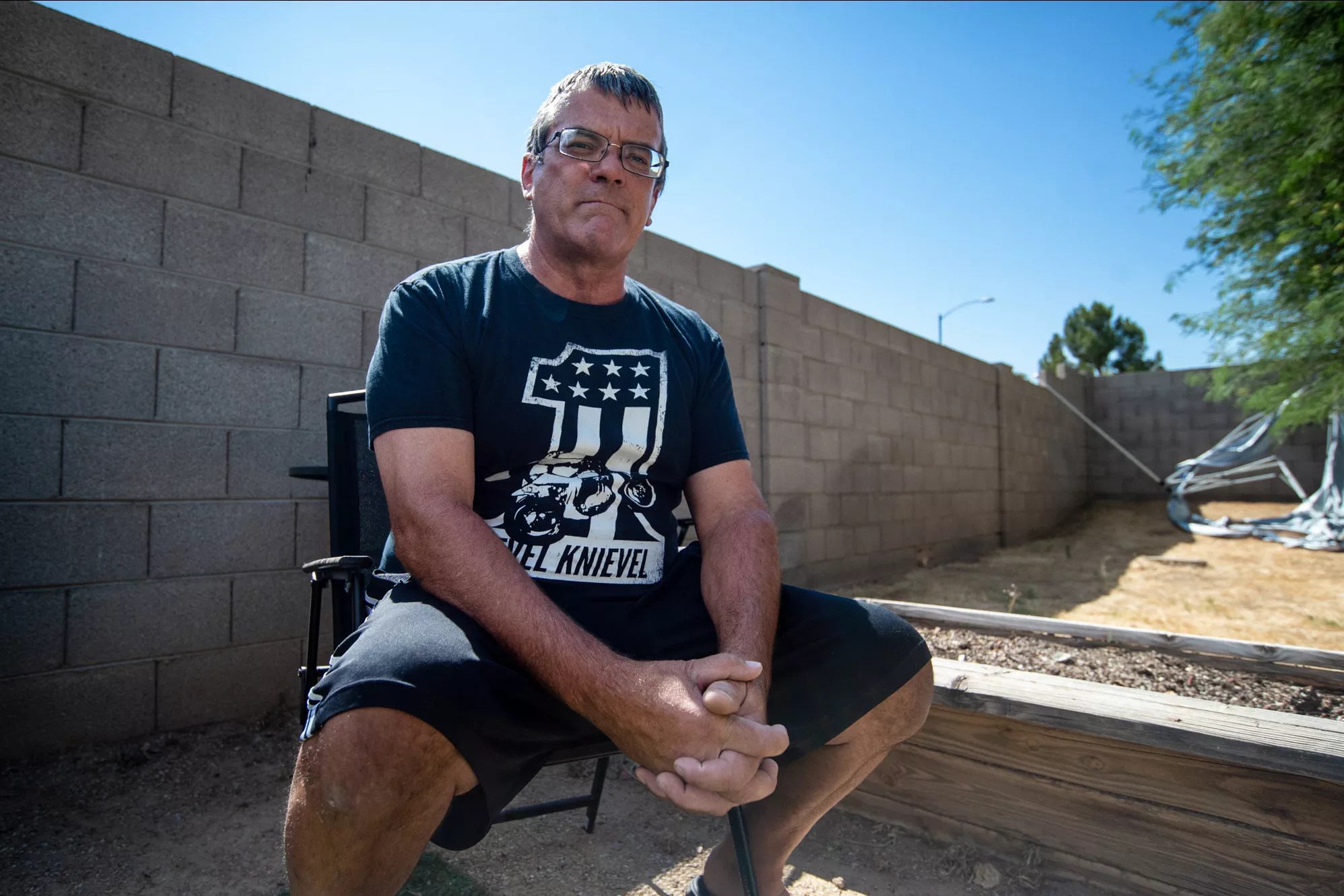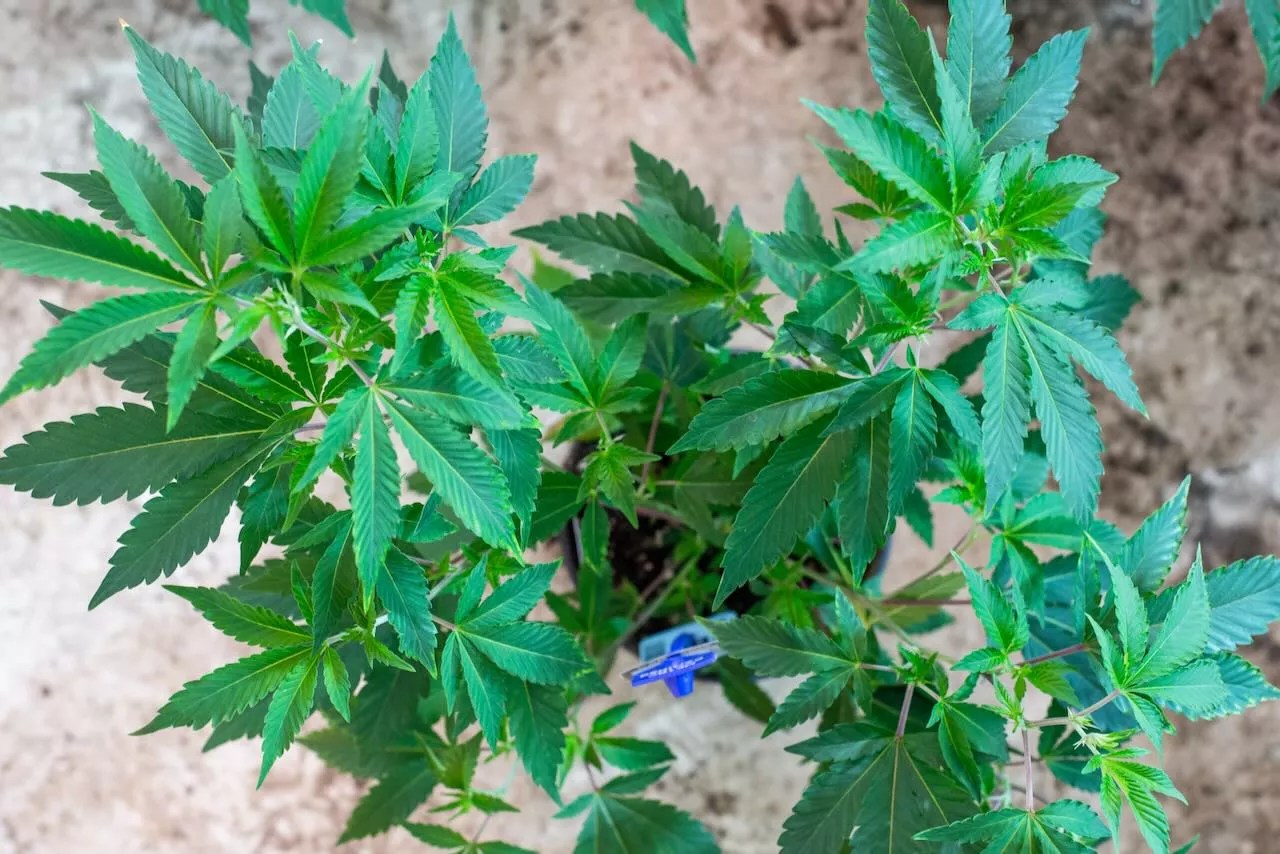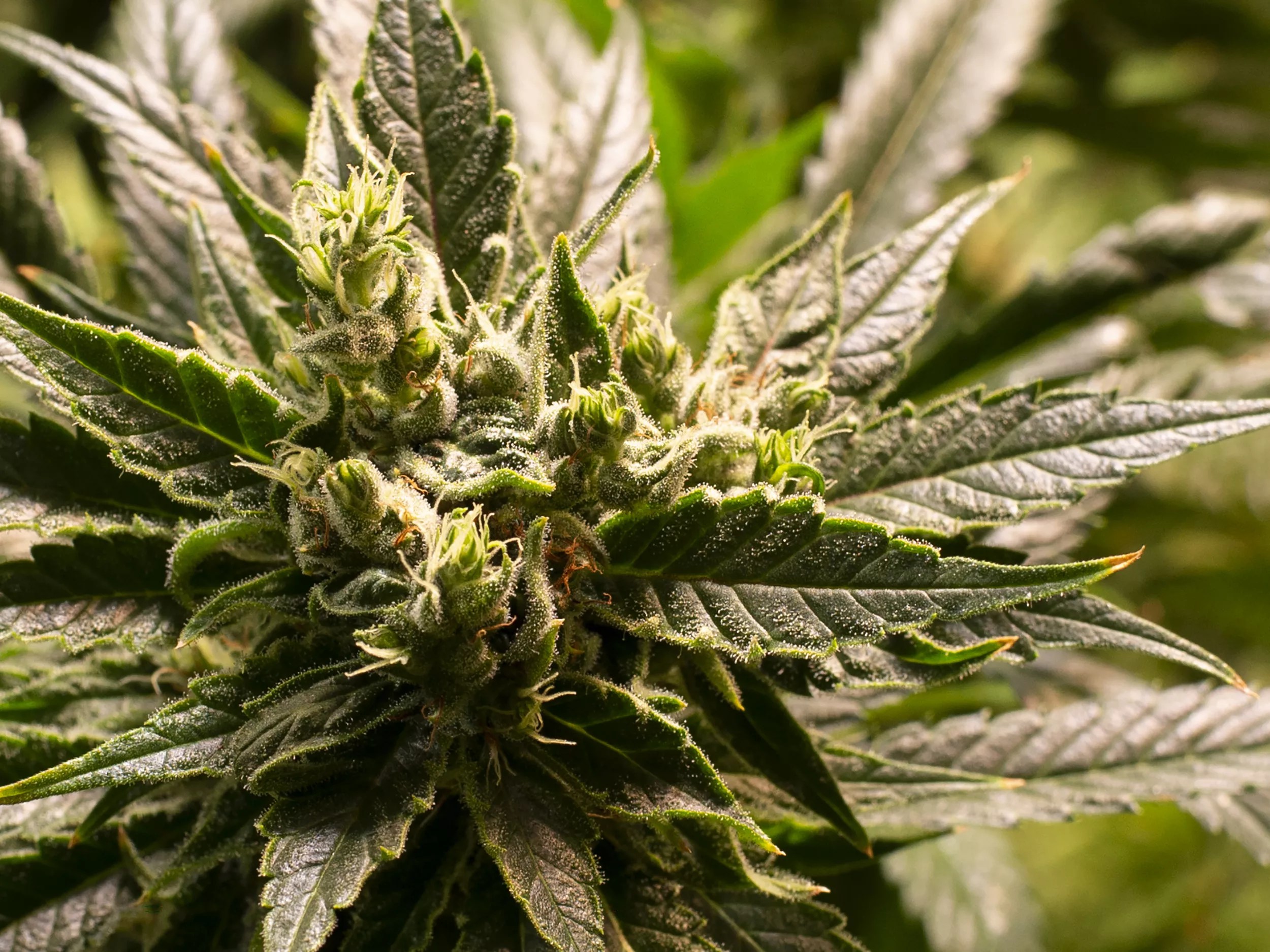
O’Hara Shipe

Audio By Carbonatix
Five plants. For Dennis Mejic, that was all that stood in the way of his freedom. If he’d had 12 marijuana plants on Oct. 10, 2012, he wouldn’t be facing deportation to a country he has never known.
But he didn’t. When Mejic’s home was raided by Peoria police that day, he had 17 pot plants. Now, the federal government is fighting to deport the 53-year-old refugee from Pancevo, Serbia – a permanent U.S. resident who’s lived in the county since he was 4 years old.
Mejic’s legal battle is a case study of the lasting impacts of Maricopa County’s ruthless pursuit of marijuana cases before voters approved medical marijuana in 2010 and recreational weed in 2020. More than a decade after his arrest, U.S. Immigrations and Customs Enforcement has refused to drop its push to deport him. The agency claims that his conviction on state marijuana-related charges indicated he was involved in drug trafficking. The evidence to support that argument is paper thin.
“It’s kind of a mystery to me why they are so aggressively pursuing this case,” said David Asser, who is Mejic’s lawyer. Other than the marijuana charge, Mejic has a clean record.
Mejic lives a simple life. He’s been a framer for decades, remodeling and constructing houses. He owns a home in Peoria and has lived in the Phoenix suburb since 1998, where he is raising two sons and caring for his elderly mother.
Mejic’s parents fled Pancevo in the early 1970s, arriving in New York in 1974 as refugees. Although he was born in what is now Serbia, when his family left it was part of the former Yugoslavia. Should Mejic be deported, he isn’t sure what country he would return to. It’s all difficult for him to imagine.
“So where are they even going to deport me to?” Mejic said in a recent interview at his home. “It’s been emotionally straining.”

People with medical marijuana cards, such as Dennis Meijc, are allowed to grow up to 12 cannabis plants.
O’Hara Shipe
The police raid
It was at his neat, nondescript home in Peoria that he shares with his son and an aging pit bull that the nightmare began. On that Wednesday in 2012, Mejic was leaving for work at sunrise. He remembers police pulling him over a block from his house and cops swarming his car. “It was pretty intense,” he said.
Officers identified Mejic’s home in the days leading up to the search as a “possible drugs/narcotics house,” according to an incident report from the Peoria Police Department obtained by Phoenix New Times. Mejic said he believes that a neighbor complained about him smoking marijuana. It’s not clear from the document what led officers to Mejic’s doorstep.
Mejic had a medical marijuana card and a small grow in a spare bedroom in the house. Years of “swinging hammers and construction,” he said, left him with chronic shoulder pain. “I like to grow plants, to grow something and eat it,” he explained. “Tomato plants, you know.”
“So I thought, yeah, I’ll grow my own marijuana. It’ll be cool. All natural,” he added.
The officers obtained a search warrant for Mejic’s home by claiming to a judge that they smelled “fresh marijuana emanating from the house,” according to the police report. They also said that Mejic hadn’t put his trash bins on the curb on trash day like other neighbors, which one officer deemed “very strange.” His higher-than-average utility bills also were “very suspicious in nature,” the officers claimed.
Yet after barging into Mejic’s home and rifling through his things, officers found little to prove their claims that he was a drug trafficker. He had 17 marijuana plants, which is five more than what state law allows medical cannabis cardholders to grow. But many of them were small and not yet flowering as he was experimenting with growing different strains, Mejic told them. The officers did not find any significant amount of cash or records of sales. They found a Glock handgun that Mejic owned legally.
“I’ve not sold anything,” Mejic told the officers, according to the police report. He told them he occasionally gave some marijuana to a neighbor, but never for cash. “I swear I have never exchanged money or cash with my neighbor,” he told them. He repeated that declaration in court filings and again during a May interview with New Times.
The Peoria officers later found the neighbor, who told them he had never bought weed from Mejic, according to the report.
“I was handcuffed, released, and the house was trashed,” Mejic recalled.
The cops seized his weed, and county prosecutors threw the book at him.
In 2012, legendary anti-marijuana crusader Bill Montgomery – now an Arizona Supreme Court justice – was serving as Maricopa County Attorney. The impact of the harsh penalties his office doled out for marijuana cases during his tenure continue to be felt years later.
Mejic faced a slate of felony charges relating to manufacturing marijuana and possessing paraphernalia and weapons. Eventually, he negotiated a deal to plead guilty to one count of “attempt to commit production of marijuana,” a class 6 felony. After a year of probation, the charge was downgraded to a misdemeanor. Mejic completed the probation with no issues.
He thought the nightmare was over after that. But then ICE showed up at his door.

Former Maricopa County Attorney Bill Montgomery’s tough approach to marijuana meant Dennis Mejic faced several felony charges for growing five plants over the legal limit.
Gage Skidmore / Creative Commons
The feds get involved
ICE agents arrived at Mejic’s home at 5 a.m. with AR15s and ballistic vests, he said. It was November 2013. They detained him and sent him to Eloy Detention Center, a private immigration detention facility about an hour’s drive south of Phoenix.
Mejic spent months there, working in kitchens and a print shop. He received a dollar for 11 to 12 hours of labor each day, he recalled. “Prison for profit, that’s what I say,” he said. Eventually, a judge granted him bond, and he was released in July 2014.
Mejic has been fighting his case ever since.
The federal government decided to treat Mejic’s conviction as a drug trafficking crime, based on the facts in the Peoria police report. That confounds Mejic and his attorney.
“I honestly don’t understand why (the Department of Homeland Security) is so adamant about the fact that Dennis is a drug trafficker,” Asser said. “Because based on the facts, he obviously is not.”
This issue is significant under U.S. immigration law. Drug trafficking crimes – those that involve “some sort of commercial dealing,” in the words of the courts – make a person ineligible for relief from deportation, even if, like Mejic, they are lawful permanent residents in the U.S. So far, two immigration judges have declared that Mejic’s crime makes him ineligible for relief. He faces deportation if his appeals are unsuccessful.
DHS, which includes ICE, did not respond to New Times’ inquiries about Mejic’s case.
Now, though, Mejic faces yet another vestige of the Maricopa County Attorney’s Office hard line on pot cases: Phoenix Immigration Court Judge Elizabeth Cottor, who is overseeing his case. Cottor was a prosecutor at the county attorney’s office from 2005 to 2019 before becoming a judge. At an Aug. 17 hearing, Cottor will have Mejic’s fate in her hands.
Cottor has a daunting track record as an immigration judge, according to an analysis of immigration court records by the Transactional Records Access Clearinghouse, a data research group at Syracuse University in New York. Cottor has denied 90.1% of asylum claims since becoming a judge in 2019, far more than the national average of 63.8%.
Of course, Mejic’s case isn’t an asylum claim. He’s arguing that his crime is not serious enough to preclude relief from deportation. “The offense did not involve violence, nor did the controlled substance have a commercial element to it,” wrote Asser in an April 5 court pleading. “At no point did Mr. Mejic pose any danger to his community.”
The August hearing won’t be the end of Mejic’s case. He plans to appeal his case – to the Ninth U.S. Circuit Court of Appeals if necessary. Asser is hopeful he will prevail. “The statute under which he was convicted has not been litigated fully in the Ninth Circuit,” Asser explained. Eventually, he said, the court “is going to look at this case and go like – well, the facts just don’t support the charge.”

Dennis Mejic faces an Aug. 17 hearing in Phoenix Immigration Court related to his 2012 arrest on marijuana charges.
O’Hara Shipe
‘An ax hanging over your head’
For Mejic, the past few years have been difficult. He now worries about going anywhere other than home and work. “I don’t really go out anymore,” he said. He turns down invitations from friends to go out of town over fears that ICE “would come get me, take me back to hell.”
Mejic’s brother, Dragan, said the case has taken a toll on the family, too. Mejic is the sole caretaker for the siblings’ elderly mother. “It’s scary when you’re 78, and you have one person that you can rely on, and that person’s facing being deported to a country that he hasn’t seen since he was 4 years old. That was half a century ago,” Dragan Mejic said.
“It’s just surreal,” he added. “It’s like having an ax hanging over your head.”
At home, Mejic leads a quiet life. He golfs in his backyard. When he spoke to New Times, a legal drama was on the TV in the living room. Mejic said he’s fascinated by the legal system and watches courtroom documentaries and shows.
“I probably shouldn’t watch all these shows, because it gives me anxiety,” he said. Yet he can’t manage to stop himself.
Mejic’s path forward will become more clear at the hearing later this month. But regardless, the case has irrevocably changed his life. For years, he has been “walking around with a bullseye on my back,” he said, all while he watched the cannabis industry boom in Arizona.
The government might want him out of the country, he said, “but they sure do take the money from the dispensaries.”